The Olympic Games. It’s the world’s biggest global sporting festival, watched by the most people and you get one chance every four years to go for gold. It’s no wonder that for Olympic sports such as triathlon, it’s the event that the vast majority of athletes place above all others.
Following the pandemic-induced delays to Tokyo 2020, the turnaround time to Paris 2024 is a short one. We are in early 2023 now, but if you are a British elite athlete who wants to be racing in the shadow of the Eiffel Tower next summer, the route map to get there has already been set.
So, what are the key criteria of the British Triathlon Selection Policy for the Paris 2024 Olympic Games? Let’s break it down.
It’s complicated
To be fair, it’s not that complicated… but the purpose of this article is to summarize seven pages of detail, into the core selection elements. As a result, I am going to simplify and/or exclude various technicalities which may be in place for procedural, legal and other purposes.
One example; technically at least, it’s not the British Triathlon that selects the athlete. they make a nominations to the British Olympic Association (BOA) after implementing their selection policy, which the BOA ratifies / makes the final approval on. It is highly unlikely that any British Triathlon nomination would not be ratified, but that’s the process, and along with similar procedures and rules, is why these documents can be quite heavy, as they need to try and be comprehensive and cover all potential scenarios .
objective
Starting at London 2012, the triathlon has been a hugely successful Olympic Sport for Great Britain. Three gold, three silver and two bronze medals from London, Rio and Tokyo see Team GB as the nation’s most successful Olympic Games triathlon.
The primary aim of this Policy is to maximize medal opportunities in BOTH the individual and Mixed Relay events in Paris
While on the surface a statement of the obvious, this aim is there because – in certain situations – the selection of an athlete who is potentially better suited to this objective could see them picked ahead of someone else with apparently ‘better’ results. Read on to see why.
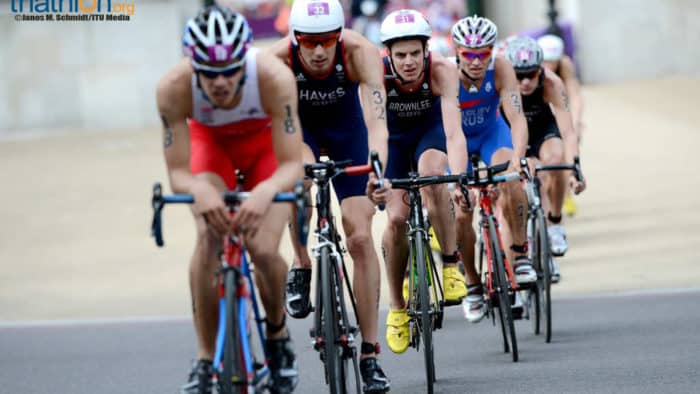
How many athletes?
These are called the quota places. Right now we don’t know, but we can take it that there will be an absolute minimum of two male and two female places (given that Great Britain have already pre-qualified for the Mixed Relay, courtesy of their result at the 2022 Mixed Relays World Championship).
Who gains a third slot for both men and women will be determined over World Triathlon’s Olympic Qualifying period, which is in progress now and will run until mid-2024. The ins and outs of the World Triathlon’s Qualification System for who can get a full complement of three quota places is for another article, but as of today at least, only three National Olympic Committees (NOCs) would receive three quota places in each individual race .
Currently – as was the case for Tokyo – Great Britain would gain a third spot for the women, but not for the men. You can be absolutely certain that the British Triathlon will be planning to ensure that the scenario is not repeated for Paris, and that a full complement of athletes is fielded. A last-minute repeat of sending Tom Bishop off week-after-week to try and secure that third place in the final weeks of the season, would not be a situation they wanted to revisit.
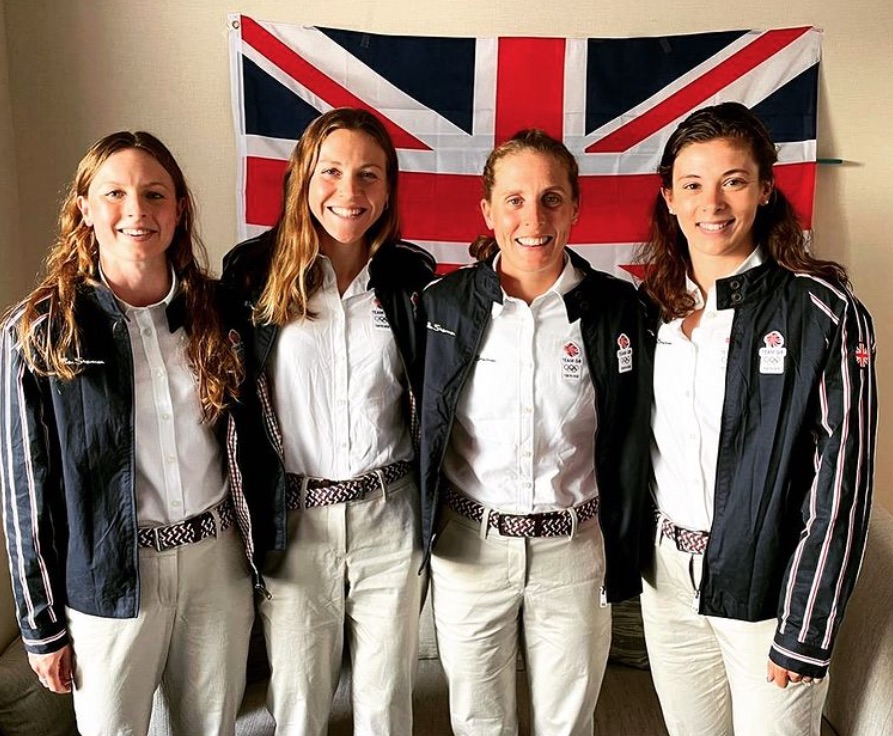
Can I qualify in 2023? Yes! (Phases 1 and 2)
Can you gain pre-nomination in 2023 for the Paris 2024 event, and thus potentially allow a full focus on the Olympic Games themselves, rather than the qualification events, in 2024? Absolutely – but the bar is set very high.
Phase 1a – Let’s call this ‘The Gold Standard‘
This is the toughest route, and requires the following:
- A podium finish at the 2023 Paris Olympic Games Test Event, AND
- A podium finish at the 2023 WTCS Championship Final in Pontevedra
Pretty clear what your A-races need to be this year then, if Paris 2024 is your goal.
Phase 1b – Effectively ‘The Yee / GTB rule‘
If you are returning Tokyo 2020 Olympic Games individual medallist (ie you are Alex Yee or Georgia Taylor-Brown), then you get a very slightly easier route to auto selection, requiring:
- A podium finish at the 2023 Paris Olympic Games Test Event, AND
- An individual WTCS podium in either 2022 or 2023.
Given that both achieved the second bullet point several times over in 2022, a podium at the Test Event would all but guarantee a return to France for both Alex and Georgia.
Now it is possible – but exceptionally unlikely – that more athletes tick the automatic nomination box – apply the rules above – than there are quota slots to allocate. In that instance, the selection panel has discretion on their choices.
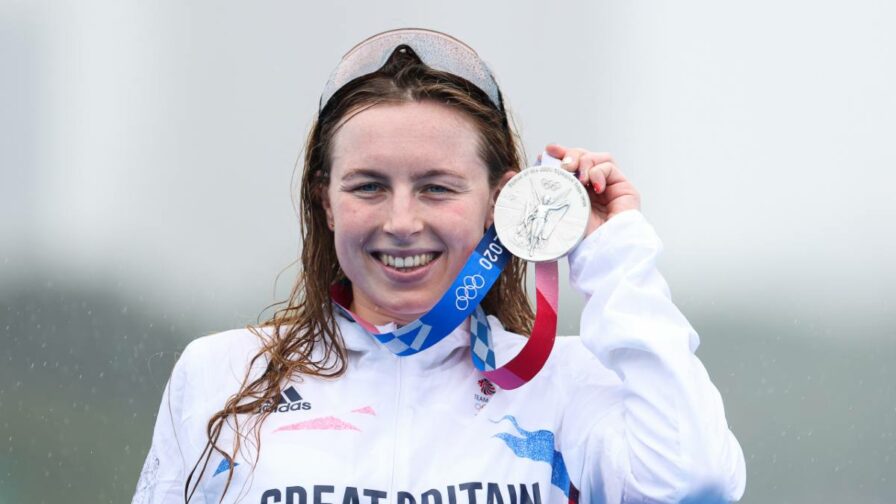
Phase 2 – Early discretionary choices. Consider this a ‘you did so well despite not quite meeting the absolute criteria, that you deserve early selection anyway’
Ok, so the requirements above are, by any standard, extremely tough. If they are not quite met, it is however still possible to be nominated for the team in 2023. Here’s how it works via this route:
- An individual podium in at least one 2023 WTCS event or at the Paris Test Event, AND
- Be considered by the panel, at that time, to be a clear and obvious individual medal contender for the Games*.
(* I won’t list them here, but the Selection Policy does provide a list of the factors and performances which would be the basis of such an assessment).
However (!) – the selection panel will not fill all available quota places at this stage (October 2023), if there remains unselected athletes who could reasonably also claim to satisfy that clear and obvious individual medal contender for the Games status.
This is an excellent move, one almost certainly arrived in conjunction with the athletes themselves and based upon the experiences of the lead-in to Tokyo. There, the full three-athlete British women’s team was picked at the end of 2019. There could be a few / any queries with the selections of Georgia Taylor-Brown and Jess Learmonth based on their performances. However, the pre-selection of Vicky Holland did raise eyebrows (and lead to athlete appeals). By picking that third athlete in advance, on a discretionary basis, you effectively slam the door shut on everyone else.
Given that Non Stanford had won a WTCS event that year (Hamburg), she – and possibly others – would have felt that was not providing them with a run at proving selection capacity in competition year. Then – and, of course, nobody could have predicted this – the entire Games was delayed a further year.
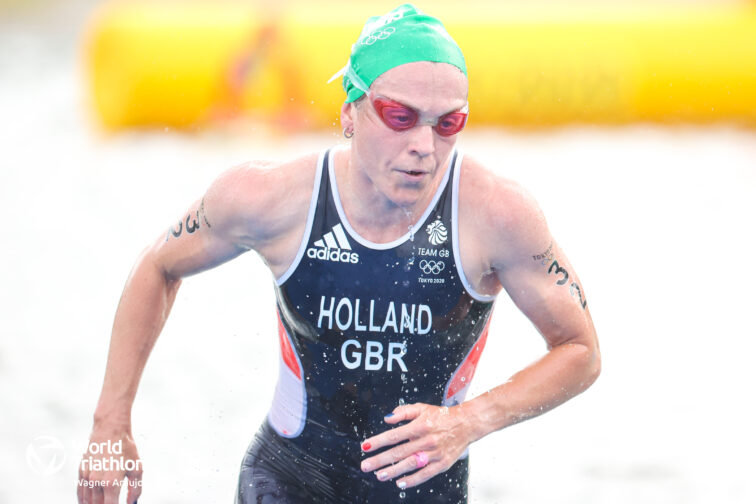
Discretion (Phase 3)
We now spring forward to 2024, and any remaining quota slots that could be left to be filled.
We are now onto ‘Phase 3’, and decisions here will be made in June 2024, shortly after then end of World Triathlon’s Olympic Qualifying cycle, which finishes on 27 May 2024.
Here, an athlete can be nominated if they are considered to be a realistic individual medal contender. How is that assessed:
- Prioritizing performances from a (TBC) Olympic distance WTCS race in 2024, and
- Consideration of the same list of factors referenced above, plus any 2024 World Triathlon races.
Identifying the special ones (Phase 4)
It is quite possible that the nomination process for all Paris 2024 quota slots could be complete at this stage. If British athletes have a great 2023 and qualify automatically, or start 2024 in style and clearly have individual medal contender status, we might not even get as far as what British Triathlon refer to as ‘Phase 4’. What is it?
IF there are still unfilled places, then consideration will be given to:
- Relay Specialist athlete
- Pilot athlete – ‘those who provide direct support (during the individual races) to medal potential athletes selected in phases 1 to 3.’
The selection panel has absolute discretion here on who they select, and also on whether they deem the Relay Specialist or Pilot role to be priority, selecting on the basis of the greatest opportunity to enhance medal success prospects.
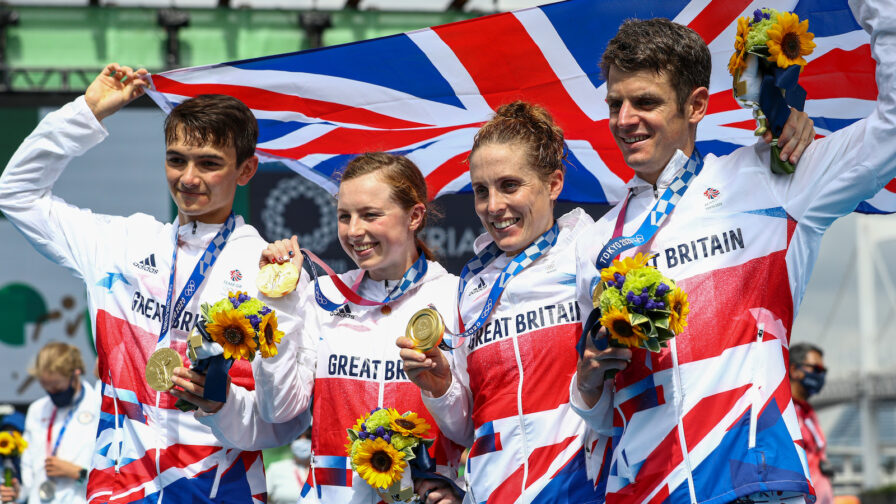
Reserves (Phase 5)
All the nominations have now been done – Phases 1 to 4 – leaving the final selection, picking reserve athletes.
This is another ‘absolute discretion’ of the Panel choice, and may potentially not be made in June 2024, leaving the potential to:
- Delay selecting and name at a later date, closer to the event OR
- Select a pool of reserves, and choose an appropriate replacement at a later date
Is there any guidance on how the discretion of the Selection Panel might be applied here? Yes:
- First select any athlete who met the Phase 3 criteria (realistic individual medal contender) that didn’t get nominated in that round, followed by
- Apply the Phase 4 (Relay Specialist / Pilot role) criteria.
good luck
And that – broadly – is the route to Paris 2024.
There’s plenty more meat on the bone if you love the details (situations in which de-selection is possible / scenarios under which de-selection can be applied / replacements / appeals processes et al), but those won’t be on the minds of anybody until at least June 2024.


